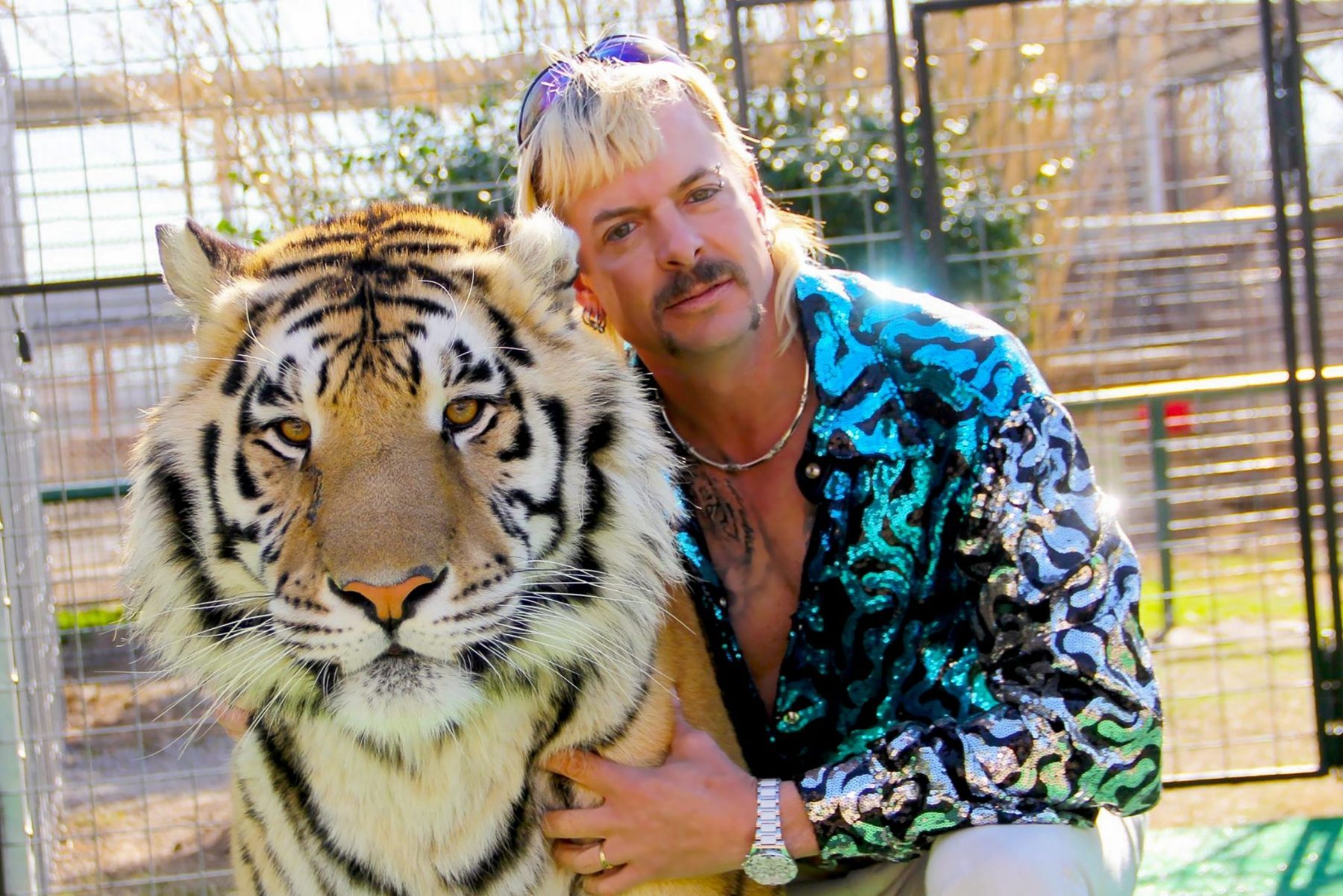“Tiger King” and quarantine is the new peanut butter and jelly. Netflix’s newest docuseries covers all things big cats and the people who keep them. The show, filmed over five years, shares the stories of some of the most, for lack of a better word, interesting people in America.
Netflix released “Tiger King: Murder, Mayhem, and Madness” on March 20, 2020, and the internet hasn’t been the same since. This past weekend, my friends and I all downloaded this Chrome extension that syncs our computer screens and brings up a chat window so we could all experience Joe Exotic together even if we were apart. If you haven’t seen the show, I suggest you do before reading, as this article will contain spoilers.
If you’re anything like me, you might have finished the seven-episode series feeling confused, shocked and in disbelief. Some of the storylines were so astonishing I struggled to believe they were true. If this was a fictional series, I would’ve assumed the writers were under the influence to have come up with plotlines like these.
Joseph Schreibvogel, more commonly known as Joe Exotic, is the protagonist of the series and hero of America. The show opens with his home and roadside zoo in Oklahoma where he has 176 tigers caged within his property line, among other species of big cats and some orangutans and monkeys.
In his first “confessional interview” Joe tells the camera he doesn’t want to take off his hat, lest the viewers see his mullet — as if his haircut is the biggest shock fans will encounter on this journey.
Joe owns The GW Zoo where he employs an unusual array of ex-cons and last-chance zookeepers, offering them a little over $100 a week and a place to live in exchange for 84-plus hour work weeks. He also moonlights as a country singer and a self-proclaimed internet reality star.
https://www.youtube.com/watch?v=WB6wYVCEY3w
There are two other key players in the show: “Doc” Antle and Carol Baskin. “Doc” is the more “sophisticated” roadside zookeeper, and Carol is Joe’s archnemesis and founder of Big Cat Rescue in Citrus Park, Florida.
Those two alone have enough history to build their own docuseries, including Doc’s cult-like relationship with most of the young girls who work at his zoo, and Carol’s missing ex-husband with alarming evidence pointing to the suspicion that she fed him to a tiger. Yes, you read that right.
Most of the show’s shock value comes not from the people, but the choices they make, highlighting how different their world is from the one most of us know. Joe and Doc are both in polygamist relationships living off of the pride and status of owning big cats.
It’s alluded to more than once that they both probably kill tigers after they’re too big for “playtimes” with customers — it’s more cost-effective to stop feeding them when you can’t exploit them for profit. Carol dedicates her life to “saving” big cats, but she still makes a living in the same way, profiting off of visitors who come to see her mighty beasts.
The series ends with the revelation that Joe hired someone to murder Carol after years of intense hatred and feuding between the two. While Joe maintains his innocence, he was convicted both of attempted murder-for-hire and animal abuse.
If I had to pick one word to summarize the entire thing, I’d probably pick “mess.” This stuff just doesn’t happen in real life, you think to yourself. So why are we all so obsessed with a show about people who not only seem to be extremely problematic at best — and murderers and felons at worst? The series gives too little attention to the real problem: the captivity and abuse of wild animals. Instead, they spend seven episodes pitting different characters against each other and splicing together footage that will create the biggest shock for viewers. As much as I hate it, I still find myself clicking “next episode.”
Now that the COVID-19 pandemic has forced mandatory state lockdowns and shelter in place orders, most U.S. residents are cooped up in their homes waiting for the day they’re told it’s safe to go outside. Even though it now seems like years ago, I still remember the feeling commonly referred to as FOMO, fear of missing out, which is traditionally applied to situations where you can’t physically be in attendance. It doesn’t seem like anything has changed even with all of our current interactions being digital. While we’ve lost the ability to come together, it doesn’t change that we want to be.
While we’re all apart, the fear of missing even one thing that seems to connect others is enough to make us hit play. The show is “meme-able” like no other, and the ability to understand a reference in an Instagram post or a tweet that might be the one humorous part of your day is something most people won’t pass up. It’s easier to enjoy the culture that comes with “Tiger King” than think of the implications of the show itself.
https://www.instagram.com/p/B_blMVkl9fW/
“The View” co-host Meghan McCain shared opinions similar to many “Tiger King” fans when talking about Joe Exotic, stating that although he was “ethically nebulous” she was “one of the people who’s fallen in love with him,” and that she “considered signing a petition to have President Trump pardon him, but that just must be out of how obscenely bored I am in my house right now.”
It seems crazy that in times of total crisis we’re all rallying around a person, who by many standards, is not “good.” I think it shows how desperate we all are to find some unity, even if our collective action isn’t around an ethical cause.
It also highlights a deeper need to escape out of a world that’s become unrecognizable into one that is, at the very least, explainable by someone, even if that someone is a production company or Joe Exotic himself. The world of “Tiger King” is so far removed from what most of us consider “normal,” we’re happy to escape into it while our current state feels anything but.
If “Tiger King” teaches us anything it’s that it is easier to be a part of something morally hazy than be apart from everyone else. And while it’s hard to empathize with the world of exotic animals, it’s easy to peek into it and learn about a strange “subculture,” if you want to call it that. So maybe “hero” is the wrong word for Joe Exotic — distraction might be a better fit.















